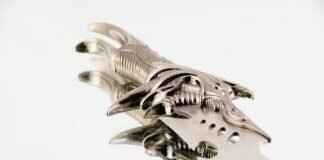When it comes to exploring the world of Asian massage parlors, first-time visitors often have a mix of excitement and apprehension. This guide aims to provide you with essential tips and insights, ensuring that your initial experience is both enjoyable and fulfilling. Understanding what to expect, how to choose the right location, and ensuring a positive atmosphere are key components of a successful visit.
Understanding Asian Massage Techniques
Asian massage encompasses a variety of techniques, each offering unique benefits. For instance, Thai massage focuses on stretching and acupressure, while Shiatsu uses finger pressure to relieve tension. Tui Na, on the other hand, combines acupressure with gentle manipulation. Familiarizing yourself with these styles can help you determine which technique aligns with your wellness goals.
What to Look for in a Quality Parlor
- Cleanliness: A well-maintained environment is crucial. Look for parlors that prioritize hygiene.
- Professionalism: Staff should exhibit professionalism and respect toward clients.
- Customer Reviews: Take time to read reviews on platforms like Yelp and Google to gauge the reputation of a parlor.
Preparing for Your First Visit
Preparation can significantly enhance your experience. Here are some tips:
- What to Wear: Opt for comfortable, loose-fitting clothing. Many parlors provide robes, but wearing something easy to remove can be beneficial.
- Communicating Your Preferences: Don’t hesitate to express any specific areas of tension or discomfort to your therapist. Clear communication will help tailor the massage to your needs.
Addressing Common Myths
There are several misconceptions about Asian massage parlors. Understanding the cultural differences and addressing safety concerns can lead to a more enjoyable experience. Remember, these establishments often focus on wellness and relaxation rather than the stereotypes that may be associated with them.
Post-Massage Care
After your session, proper care is essential. Hydration is key; drinking water helps flush out toxins released during the massage. Additionally, consider scheduling follow-up treatments to maintain your physical and mental well-being.
By following these guidelines, first-time visitors can navigate the world of Asian massage parlors with confidence, ensuring a rewarding experience.

Understanding Asian Massage Techniques
Asian massage is a rich tapestry of techniques that have evolved over centuries, each offering distinct benefits and therapeutic approaches. Among the most popular styles are Thai, Spa Shiatsu, and Tui Na. Understanding these techniques is essential for anyone looking to explore the world of Asian massage.
- Thai Massage: This ancient practice combines acupressure, yoga-like stretching, and deep tissue work. It is performed on a mat, allowing the therapist to use their body weight to apply pressure. The goal is to enhance flexibility, relieve tension, and promote overall well-being.
- Spa Shiatsu: Originating in Japan, Shiatsu focuses on applying pressure to specific points along the body’s energy pathways, known as meridians. This technique aims to balance the body’s energy, alleviate stress, and improve circulation. It is often performed fully clothed, making it accessible for those who prefer not to undress.
- Tui Na: This Chinese therapeutic massage incorporates various techniques, including kneading, rolling, and pressing. Tui Na is often used in conjunction with acupuncture and herbal medicine to treat specific health issues. It emphasizes the flow of Qi (energy) in the body, aiming to restore balance and health.
Each of these styles offers unique benefits, making it crucial to consider your personal needs when selecting a massage parlor. For instance, if you seek relaxation, Thai massage might be ideal, while those looking for pain relief may benefit more from Tui Na. Understanding these differences can significantly enhance your experience and outcomes.
Before making a decision, it is also advisable to research the specific techniques offered by a parlor. Many establishments provide detailed descriptions of their services, allowing you to choose a style that aligns with your health goals and preferences. Whether you’re seeking relaxation, pain relief, or a boost in energy, knowing the nuances of each technique will empower you to make an informed choice.

What to Look for in a Quality Parlor
When searching for a quality massage parlor, it is essential to consider several key factors to ensure a positive experience. A reputable establishment can make all the difference in your relaxation journey. Below are some vital aspects to keep in mind:
- Cleanliness: The first impression often comes from the overall cleanliness of the parlor. A tidy environment reflects the establishment’s commitment to hygiene and customer care. Look for well-maintained facilities, including treatment rooms, restrooms, and waiting areas.
- Professionalism: Staff professionalism is crucial. Friendly and knowledgeable therapists should greet you, making you feel comfortable and respected. Their ability to communicate effectively about services and answer your questions is a good indicator of quality.
- Customer Reviews: Online reviews can provide valuable insights into the experiences of previous customers. Websites like Yelp and Google Reviews allow you to gauge the reputation of the parlor. Pay attention to the overall rating and read through specific comments to understand what to expect.
- Service Variety: A quality parlor typically offers a range of services tailored to different needs. Whether you’re looking for a relaxing Swedish massage or a more intense deep tissue session, having options is a sign of a well-rounded establishment.
- Therapist Qualifications: Inquire about the qualifications and experience of the therapists. A reputable parlor will have licensed professionals who are trained in various massage techniques. Their expertise can greatly enhance your experience.
- Ambiance: The atmosphere of the parlor plays a significant role in your overall experience. Look for soothing music, calming scents, and a peaceful environment that promotes relaxation.
By considering these factors, you can identify a quality massage parlor that meets your expectations and provides a satisfying experience. Remember, your comfort and well-being should always be the top priority.
Checking Online Reviews and Ratings
When considering a visit to an Asian massage parlor, online reviews serve as a valuable resource. They provide a glimpse into the experiences of previous customers, helping you gauge the quality of service and overall atmosphere before you step through the door.
Platforms such as Yelp and Google Reviews are particularly useful for this purpose. These websites aggregate customer feedback, allowing potential clients to read about others’ encounters with various establishments. By examining these reviews, you can form a clearer picture of what to expect during your visit.
When reading online reviews, it’s important to focus on specific aspects of the service. Look for comments that highlight:
- Service Quality: Positive reviews often detail the professionalism and skills of the therapists.
- Therapist Expertise: Many customers share insights about the qualifications and techniques used by the staff.
- Ambiance: The overall environment of the parlor can significantly impact your experience, so pay attention to comments regarding cleanliness and comfort.
While positive feedback can indicate a trustworthy establishment, negative reviews should also be taken seriously. Consistent complaints about:
- Cleanliness: A lack of hygiene can be a major red flag.
- Unprofessional Behavior: Comments about rude or inattentive staff should raise concerns.
- Pressure Tactics: If multiple reviews mention feeling pressured to purchase additional services, it may be wise to reconsider your choice.
In summary, leveraging online reviews can significantly enhance your decision-making process. By taking the time to assess the feedback from previous customers, you can select a massage parlor that aligns with your expectations and ensures a positive experience.
Evaluating Customer Feedback
When seeking to enhance your experience at an Asian massage parlor, is a critical step. It not only provides insights into the quality of services offered but also helps you gauge the overall atmosphere of the establishment. Here are some key aspects to consider:
- Service Quality: Look for comments that specifically mention the quality of the massage received. Positive remarks about the effectiveness of techniques used can indicate skilled therapists.
- Therapist Expertise: Feedback that highlights the therapists’ qualifications and experience can assure you of their professionalism. Customers often share their experiences regarding the therapists’ ability to address specific issues, such as muscle tension or stress relief.
- Ambiance: The overall environment plays a significant role in your experience. Comments on cleanliness, decor, and the general vibe can help you determine if the parlor is a comfortable place for relaxation.
Additionally, consider the consistency of the reviews. A few positive remarks among a sea of negative ones may not be enough to assure you of a quality experience. Instead, seek establishments with a strong history of positive feedback. This consistency often reflects a commitment to customer satisfaction and service excellence.
Moreover, take note of any specific complaints that arise frequently. If multiple reviews mention issues such as unprofessional behavior or inadequate cleanliness, these are potential red flags that should not be overlooked. Trustworthy establishments will often have a track record of addressing customer concerns promptly and effectively.
In summary, paying attention to customer feedback is essential for selecting a reputable Asian massage parlor. By focusing on service quality, therapist expertise, and ambiance, you can make an informed choice that enhances your overall experience.
Identifying Red Flags
When searching for a massage parlor, it’s essential to be vigilant and identify potential red flags that could indicate a negative experience. While many establishments offer exceptional services, some may not uphold the standards you expect. Here are some critical aspects to consider:
- Cleanliness: A clean environment is paramount. If reviews frequently mention issues with hygiene—such as dirty facilities or unkempt treatment rooms—this should raise a significant concern. A reputable parlor prioritizes cleanliness, ensuring that all areas are well-maintained and sanitary.
- Professionalism: Customer service is a reflection of a business’s values. Look for consistent feedback regarding the staff’s behavior. Unprofessional conduct, such as rude interactions or lack of respect for client comfort, can detract from your experience. A professional therapist should create a welcoming atmosphere and be attentive to your needs.
- Pressure Tactics: Be wary of establishments that employ aggressive sales techniques, such as pressuring clients into additional services or upselling treatments. This behavior can indicate a focus on profit rather than client satisfaction. A good parlor will respect your choices and provide recommendations without being overly pushy.
- Consistency in Reviews: Pay attention to patterns in customer feedback. If multiple reviews highlight similar negative experiences, it’s a strong indication that the issues are systemic rather than isolated incidents. Trustworthy establishments should have a consistent track record of positive experiences.
In summary, taking the time to research and evaluate potential red flags can significantly enhance your chances of having a positive experience at an Asian massage parlor. By prioritizing cleanliness, professionalism, and respectful practices, you can ensure a more enjoyable visit.
Understanding Pricing Structures
When exploring Asian massage parlors, understanding the pricing structures is essential to ensure a satisfying experience without unexpected costs. Prices can fluctuate dramatically from one parlor to another, influenced by factors such as location, services offered, and the expertise of the therapists. To avoid overpaying, it is beneficial to familiarize yourself with the standard rates in your area.
Typically, a basic massage session may range from $50 to $120, depending on the duration and type of massage. For instance, a Thai massage might be priced differently than a Shiatsu or Tui Na session. Additionally, some establishments may offer special packages or discounts for first-time visitors, which can provide excellent value.
Another aspect to consider is the potential for hidden fees. Some parlors may advertise low base prices but add extra charges for amenities such as aromatherapy, hot stones, or even gratuity. Always inquire about the full cost before booking your appointment to avoid any surprises. A reputable parlor should be transparent about their pricing and any additional fees involved.
It’s also wise to check if the parlor accepts tips as part of their service. While tipping is customary in many cultures, the expected amount can vary. Generally, a tip of 15-20% of the total bill is a good standard to follow, but it’s best to confirm the parlor’s policy on gratuities.
Lastly, consider the location of the massage parlor. Establishments in high-demand areas or upscale neighborhoods may charge more due to higher operating costs. Conversely, parlors in less-trafficked regions may offer more competitive pricing. By doing a bit of research and comparing prices, you can find a massage parlor that fits your budget while providing quality service.

Preparing for Your First Visit
When it comes to visiting an Asian massage parlor for the first time, preparation can significantly enhance your overall experience. Understanding what to expect and how to effectively communicate your preferences is crucial for ensuring a satisfying visit.
Before you arrive, it’s beneficial to familiarize yourself with the different types of massages offered. Each style, whether it’s Thai, Shiatsu, or Tui Na, has its unique techniques and benefits. Knowing which type aligns with your needs can help you choose the right parlor and therapist.
- Warm Welcome: Upon arrival, you should expect a friendly greeting and a brief consultation to discuss your preferences.
- Comfortable Environment: A reputable parlor will provide a tranquil atmosphere, which is essential for relaxation.
- Clear Communication: Be prepared to communicate any areas of tension or discomfort. This ensures that the therapist can tailor the session to your specific needs.
Effective communication is key to a satisfying massage experience. Consider the following tips:
- Be Specific: Clearly express any areas where you feel tension or pain.
- Indicate Pressure Levels: Let the therapist know your preferred level of pressure, whether you prefer a lighter touch or deeper pressure.
- Discuss Any Concerns: If you have specific health issues or preferences, don’t hesitate to mention them.
Choosing the right attire is essential for comfort. Consider wearing:
- Loose Clothing: This allows for easy movement and comfort during the massage.
- Minimal Accessories: Remove jewelry or items that could hinder the massage experience.
By preparing adequately for your first visit, you can ensure a more enjoyable and fulfilling experience at an Asian massage parlor. Remember, the goal is to relax and rejuvenate, so take the time to communicate your needs clearly and enjoy the benefits of the massage.
What to Wear
When preparing for your visit to an Asian massage parlor, what you wear can significantly influence your overall experience. The right clothing can enhance your comfort and relaxation during the session. Here are some key points to consider:
- Opt for Comfortable Clothing: Choose attire that allows for easy movement and flexibility. Loose-fitting clothes made from breathable fabrics, such as cotton or bamboo, are ideal. Avoid tight or restrictive clothing that may hinder your comfort.
- Consider Layering: Depending on the temperature of the parlor, layering can be beneficial. A comfortable t-shirt or tank top paired with lightweight pants or shorts allows you to adjust your clothing based on your comfort level.
- Easy to Remove: Many parlors provide robes or towels for your convenience. Wearing something that is easy to take off, such as a button-up shirt or elastic-waist pants, can make the transition smoother and more comfortable.
- Avoid Jewelry: It is advisable to leave jewelry at home or in your locker. Not only can it be uncomfortable during the massage, but it may also get in the way of the therapist’s work.
- Footwear Matters: Slip-on shoes or sandals are ideal for your visit. They are easy to remove and put on, which is particularly helpful when transitioning from the waiting area to the treatment room.
By choosing the right clothing, you can ensure that your experience at the massage parlor is as relaxing and enjoyable as possible. Remember that comfort is key, so prioritize your personal preferences when selecting your outfit.
Communicating Your Preferences
Effective communication with your therapist is essential for a successful massage experience. When you visit an Asian massage parlor for the first time, it’s important to articulate your specific needs and preferences clearly. Doing so can significantly enhance the quality of your treatment and ensure it addresses your unique areas of tension or discomfort.
Start by discussing any particular aches or pains you may be experiencing. Whether it’s chronic back pain, tight shoulders, or stress-related tension, sharing this information allows the therapist to focus on those areas during the session. Additionally, if you have any previous injuries or health concerns, make sure to inform your therapist beforehand. This transparency helps in customizing the massage technique to suit your condition.
- Be specific about pressure preferences: Some individuals prefer a gentle touch, while others may seek a more intense pressure. Communicating your comfort level can guide the therapist in adjusting their technique accordingly.
- Indicate your comfort with certain techniques: Asian massage encompasses various styles, such as Shiatsu or Thai. If you have a preference, let your therapist know, as this can enhance your overall experience.
- Discuss your goals: Are you looking for relaxation, pain relief, or increased flexibility? Sharing your objectives can help the therapist tailor the session to meet your expectations.
Don’t hesitate to provide feedback during the massage as well. If something feels uncomfortable or if you would like the therapist to focus more on a particular area, expressing this in real-time can lead to a more satisfying experience. Remember, your comfort and satisfaction are the top priorities.
In summary, effective communication is the key to a personalized massage experience. By clearly expressing your needs and preferences, you empower your therapist to provide the best possible service tailored specifically to you.

Common Myths About Asian Massage Parlors
When it comes to Asian massage parlors, various misconceptions can lead to misunderstandings and apprehensions among potential visitors. It’s essential to debunk these myths to foster a more informed and enjoyable experience, especially for first-time clients.
- Myth 1: All Asian Massage Parlors Are the Same
- Myth 2: Asian Massage Is Only About Relaxation
- Myth 3: Safety Is a Major Concern
- Myth 4: Only Certain Therapists Are Qualified
- Myth 5: Asian Massage Parlors Are Inherently Unsanitary
This is far from the truth. Asian massage encompasses a wide range of techniques, including Thai, Shiatsu, and Tui Na, each with its unique approach and benefits. Understanding these differences can help clients select a parlor that best suits their needs.
While many people seek massage for relaxation, Asian massage techniques often focus on therapeutic benefits. Techniques like acupressure and deep tissue work aim to relieve pain and improve mobility, offering more than just a relaxing experience.
Many first-time visitors worry about safety in Asian massage parlors. However, reputable establishments prioritize client safety and comfort. Researching reviews and understanding a parlor’s protocols can help alleviate these concerns.
Another common misconception is that only therapists of a specific background can provide quality Asian massages. In reality, many trained professionals, regardless of their ethnicity, can deliver exceptional services when they are properly certified and experienced.
Cleanliness is a priority for reputable massage parlors. Many establishments adhere to strict hygiene standards, ensuring a safe and pleasant environment for clients. Observing the parlor’s cleanliness upon arrival can provide reassurance.
By debunking these myths, first-time visitors can approach Asian massage parlors with confidence, leading to a more enriching and satisfying experience.
Understanding Cultural Differences
When exploring the world of Asian massage, it is essential to recognize that cultural perceptions of massage can vary significantly across different regions and traditions. This understanding not only enhances your appreciation of the techniques used but also enriches your overall experience.
In many Asian cultures, massage is regarded as a holistic practice that goes beyond mere physical relaxation. For instance, in Traditional Chinese Medicine, massage is often integrated with concepts like Qi (energy flow) and Yin-Yang balance. Practitioners believe that manipulating the body through techniques such as Tui Na can help restore harmony and promote healing. This contrasts sharply with Western views, where massage is frequently seen as a luxury or a way to relieve tension.
Similarly, Thai massage, which combines acupressure and assisted yoga postures, is deeply rooted in Buddhist traditions. It is not just a physical treatment but also a spiritual experience aimed at achieving mental clarity and emotional balance. Understanding these underlying philosophies can significantly enhance your appreciation of the massage techniques employed.
Moreover, the etiquette surrounding massage can differ. In some cultures, it is customary to engage in conversation during the session, while in others, silence is preferred to allow for a meditative experience. Being aware of these nuances can help you feel more comfortable and respectful in a new environment.
As you prepare for your visit to an Asian massage parlor, consider these cultural insights. They can guide your expectations and interactions, ultimately leading to a more fulfilling experience. Embracing these differences will not only enhance your understanding but also allow you to connect more deeply with the therapeutic practices offered.
Addressing Safety Concerns
When visiting an Asian massage parlor for the first time, understanding and addressing safety concerns is paramount. Many first-time visitors may feel apprehensive about their surroundings and the services offered. To ensure a positive experience, it is essential to familiarize yourself with the parlor’s protocols and maintain a heightened sense of awareness.
Here are some key points to consider:
- Research the Parlor: Before your visit, take the time to research the massage parlor online. Check their website for information on services, staff qualifications, and safety protocols. Look for customer testimonials to gauge their reputation.
- Observe the Environment: Upon arrival, take note of the cleanliness and overall ambiance of the parlor. A well-maintained space often indicates a professional establishment. If anything feels off, trust your instincts and consider leaving.
- Communicate Your Comfort Levels: Don’t hesitate to express your comfort levels with the therapist. Clear communication can help establish boundaries and ensure that you feel safe throughout the session.
- Understand the Services Offered: Familiarize yourself with the types of massages available and ask questions if you are unsure about any procedure. A reputable parlor will be transparent about their services and what to expect.
- Trust Your Instincts: If something doesn’t feel right during your visit, it’s perfectly acceptable to end the session early. Your safety and comfort should always come first.
By taking these precautions and being aware of your surroundings, you can significantly enhance your experience and ensure a secure environment. Remember, a positive visit is not just about relaxation but also about feeling safe and respected.

Post-Massage Care and Recommendations
After experiencing a rejuvenating massage, it’s essential to focus on post-massage care to maximize the benefits of the treatment. Proper care not only enhances relaxation but also promotes healing and overall well-being. Here are some key recommendations to consider following your session:
- Hydration: One of the most important steps after a massage is to hydrate your body. Drinking plenty of water helps flush out toxins that may have been released during the treatment. Aim for at least 8-10 ounces of water immediately after your massage.
- Rest and Relaxation: Allowing your body to rest is crucial for recovery. Try to avoid strenuous activities for the remainder of the day. Instead, consider engaging in light activities such as gentle stretching or simply relaxing in a comfortable setting.
- Warm Compresses: If you experience any soreness after your session, applying a warm compress to the affected areas can provide relief. This helps to relax tight muscles and improve blood circulation.
- Gentle Movement: While rest is important, incorporating gentle movements like walking can promote circulation and help maintain flexibility. Listen to your body and avoid any intense workouts for at least 24 hours.
- Follow-Up Treatments: Depending on your experience, consider scheduling regular massages. Consistent treatments can help maintain physical and mental well-being, providing cumulative benefits over time.
- Listen to Your Body: Pay attention to how your body feels in the days following your massage. If you notice any persistent discomfort, consider consulting a healthcare professional for further advice.
By following these post-massage care tips, you can ensure that the benefits of your treatment are long-lasting. Embracing these practices will not only enhance your relaxation but also contribute to your overall health and wellness.
Hydration and Rest
After indulging in a rejuvenating massage, it is essential to prioritize hydration and rest to fully reap the benefits of the treatment. These two practices play a crucial role in enhancing recovery and ensuring that your body feels its best.
Firstly, drinking water post-massage is vital. Massages stimulate the muscles and promote circulation, which can lead to the release of toxins stored in your body. By replenishing your fluids, you help your body flush out these toxins more effectively. It is recommended to drink at least 8-10 ounces of water immediately after your session, and continue to hydrate throughout the day. This not only aids in recovery but also helps reduce any potential soreness you may experience.
Moreover, allowing your body to rest after a massage is equally important. Your muscles have just undergone a significant amount of manipulation, and they need time to recover. Resting can involve simply relaxing at home, avoiding strenuous activities, or even taking a short nap. This downtime allows your muscles to heal and adapt to the treatment, maximizing the overall benefits.
- Hydration Tips:
- Drink water before and after your massage session.
- Consider herbal teas for added benefits.
- Avoid alcohol and caffeinated beverages that can dehydrate you.
- Resting Strategies:
- Engage in light stretching to keep muscles relaxed.
- Create a calm environment to enhance relaxation.
- Listen to soothing music or practice meditation.
In conclusion, prioritizing hydration and rest after your massage is essential for maximizing the positive effects of the treatment. By following these simple yet effective practices, you can enhance your recovery and enjoy the lasting benefits of your massage experience.
Follow-Up Treatments
When it comes to reaping the full benefits of massage therapy, play a crucial role. After your initial session, it’s important to consider scheduling regular appointments based on your experience and personal needs. Regular massages can provide ongoing benefits, helping to maintain both physical and mental well-being.
Many individuals find that a single massage is just the beginning of their journey toward relaxation and healing. By incorporating consistent sessions into your routine, you can experience a range of advantages:
- Enhanced Muscle Recovery: Regular massages can help alleviate muscle tension and soreness, making them an excellent option for athletes or those with physically demanding jobs.
- Improved Flexibility: Frequent treatments can enhance your range of motion and flexibility, contributing to better overall physical performance.
- Stress Reduction: Regularly scheduled massages can significantly lower stress levels, promoting a sense of calm and emotional balance.
- Better Sleep Quality: Many individuals report improved sleep patterns after consistent massage therapy, leading to greater overall health.
To maximize the benefits of follow-up treatments, consider the following tips:
- Assess Your Needs: After your first session, take note of how your body feels and what areas may need additional attention. Communicate these observations with your therapist.
- Establish a Schedule: Depending on your lifestyle and needs, you may want to schedule massages weekly, bi-weekly, or monthly. Finding a rhythm that works for you is key.
- Explore Different Techniques: Don’t hesitate to try various massage styles or therapists to find what resonates best with your body and mind.
Overall, making follow-up appointments part of your self-care routine can lead to long-term health benefits. Embrace the journey of wellness through regular massage therapy, and experience the profound effects it can have on your life.
Frequently Asked Questions
- What should I expect during my first visit to an Asian massage parlor?
Expect a warm welcome and a calm environment. You’ll typically fill out a form about your health and preferences. The therapist will discuss your needs, so don’t hesitate to share any specific areas of tension or discomfort!
- How do I choose the right massage parlor?
Look for cleanliness, professional staff, and positive online reviews. Check platforms like Yelp or Google Reviews to gauge customer experiences. A reputable parlor will have a good track record and be transparent about their services.
- Are there any safety concerns I should be aware of?
It’s natural to have safety concerns, especially as a first-time visitor. Always choose a parlor with good reviews and observe the environment. If something feels off, trust your instincts and leave.
- What should I wear for my massage?
Comfort is key! Wear loose, comfortable clothing that’s easy to remove. Many parlors provide robes or towels, but you’ll want to feel at ease during your session.
- How can I maximize the benefits of my massage?
Stay hydrated before and after your session, and consider scheduling follow-up appointments. Regular massages can enhance your overall well-being and keep your body feeling great!













